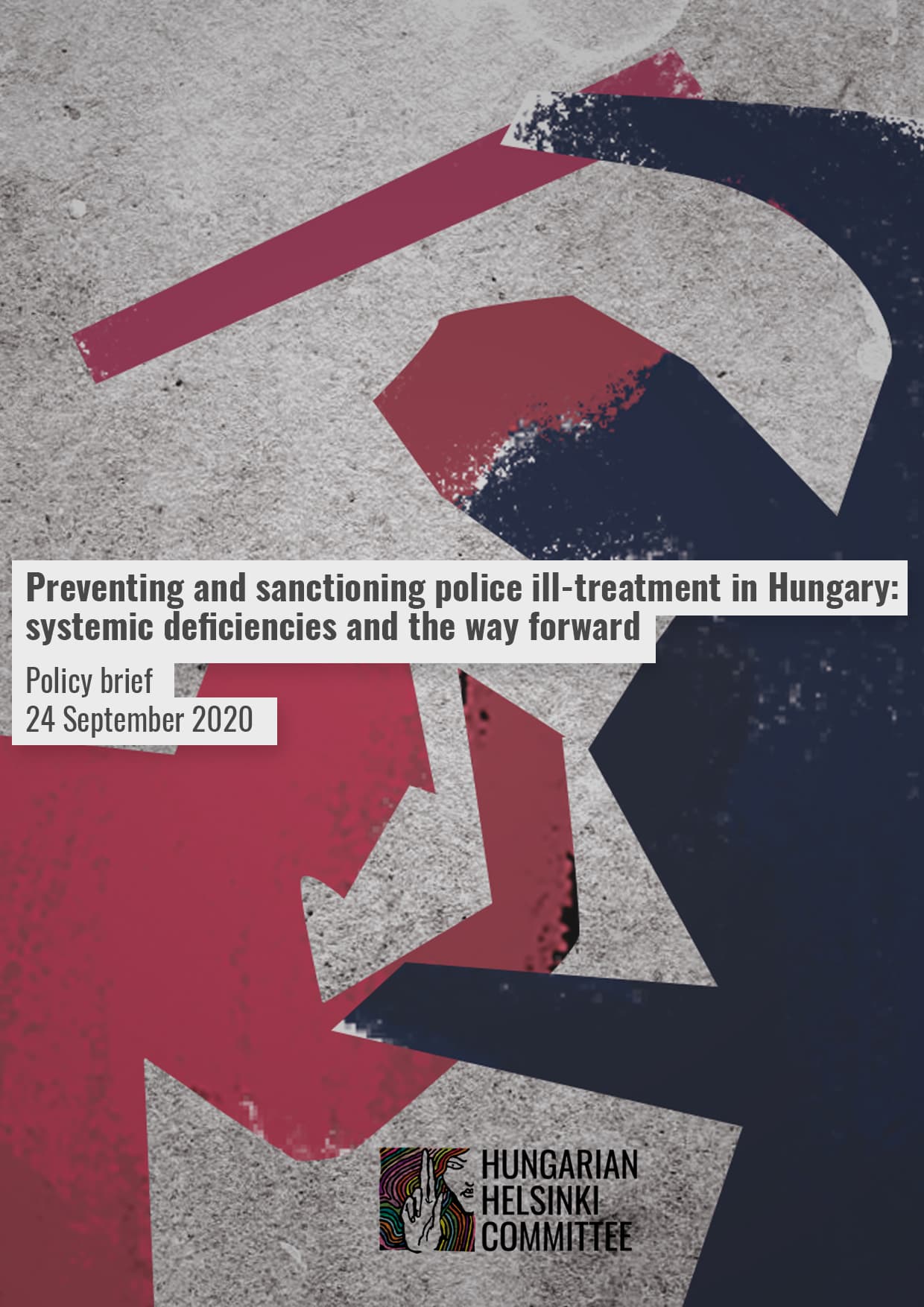Preventing and sanctioning police ill-treatment in Hungary: systemic deficiencies and the way forward
In our new policy brief, we discuss the key systemic deficiencies that the Hungarian authorities should address in order to prevent, investigate and sanction police ill-treatment adequately and more effectively – and in order to execute the ECtHR’s related judgments.
 Next week, between 29 September and 1 October 2020, the Committee of Ministers of the Council of Europe will have the execution of a group of judgments by the European Court of Human Rights concerning police ill-treatment in Hungary on the agenda of its Human Rights meeting.
Next week, between 29 September and 1 October 2020, the Committee of Ministers of the Council of Europe will have the execution of a group of judgments by the European Court of Human Rights concerning police ill-treatment in Hungary on the agenda of its Human Rights meeting.
Along the years, the European Court of Human Rights has found in multiple cases that Hungary had violated the prohibition of torture when failing to carry out adequate and effective investigations into allegations of ill-treatment by police officers. The “complex and long-standing nature” of the problems raised in the respective judgments led the Committee of Ministers, in the framework of supervising the execution of ECtHR judgments, to transfer the respective Gubacsi v. Hungary group of cases to the so-called enhanced procedure in 2018.
In the action reports submitted ahead of next week’s meeting, the Hungarian Government claimed that it had executed the judgments. However, the Hungarian Helsinki Committee is of the view that this is not the case: in fact, the Hungarian Government continues to fail to address systemic deficiencies in how the Hungarian criminal justice system handles ill-treatment and torture by the police, limiting the possibilities of preventing ill-treatment and adequately investigating ill-treatment allegations.
In our new policy brief, we discuss the key areas that the Hungarian authorities should address in order to prevent, investigate and sanction police ill-treatment more effectively, presenting statistical data, research results and the observations of international stakeholders, and formulating recommendations.
The policy brief is available here:
For a short overview of the most crucial deficiencies and our recommendations, see our 2-page summary brief here: